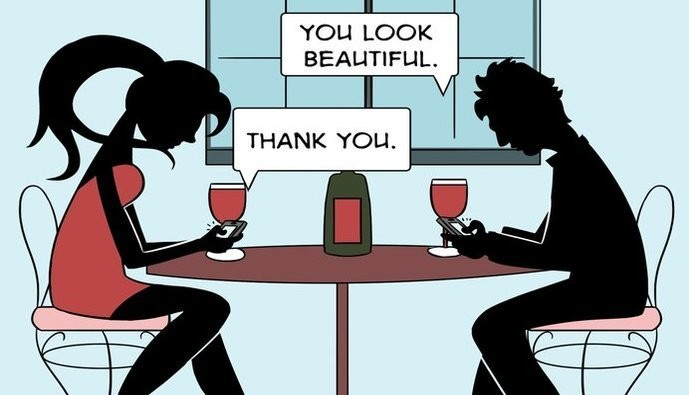Blog #9: EOTO Terms & Concepts
Accountability and transparency are the pillars of a strong democracy in the complex workings of the government. The whistleblower is one important element in maintaining these principles. A person who reports wrongdoing, misconduct, or unethical behavior within a government institution or agency is known as a whistleblower. I believe that they are crucial in ensuring that the government runs ethically, effectively, and in the people's best interests.
A definition from the National Whistleblower Center states what a whistleblower is in a perfect way. “On the simplest level, a whistleblower is someone who reports waste, fraud, abuse, corruption, or dangers to public health and safety to someone who is in the position to rectify the wrongdoing. A whistleblower typically works inside of the organization where the wrongdoing is taking place” (https://www.whistleblowers.org/what-is-a-whistleblower/). Government honesty is maintained in a significant way thanks to whistleblowers. They serve as watchdogs, demanding accountability from public servants, specifically people of power in government. Many unethical behaviors could go unnoticed without their willingness to come forward, undermining public confidence in governmental institutions. “Pioneering whistleblower laws were passed by the Continental Congress in 1778, and by Abraham Lincoln in 1863, at the height of the Civil War” (https://time.com/5735420/whistleblowers-in-america-2019/). Whistleblowers are also crucial for halting or preventing possible harm to society. Their disclosures have the potential to protect the environment, save government money, and in some public safety situations, even save lives.
Although there are many positive impacts of a whistleblower holding government officials accountable and upholding the integrity that our system desperately needs, there can sometimes be negative consequences. According to TIME, the importance and effectiveness of whistleblowers is poorly contributing to American society in the long run. TIME stated that whistleblowers are “...a symptom of the breakdown of internal checks and balances on our corporations and our government” (https://time.com/5735420/whistleblowers-in-america-2019/). To add, whistleblowers can also contribute to an erosion of trust within governments and institutions, interfere with decision making within organizations, and it can create fear when it comes to retaliation or speaking out about important matters because of the all too often demonization of whistleblowers in society.
Whistleblowers can have major impacts on society overall, and these effects can be both good and bad. Their effects on society can be far-reaching and complicated, based on what they reveal and how people react to it. Whistleblowers are very important for revealing corruption, fraud, power abuse, and other unethical behavior in groups, such as government agencies and businesses. Their actions can lead to investigations, convictions, and policy changes that make wrongdoers pay for their actions and make society more transparent. Whistleblowers can help keep people from getting hurt in important ways. For example, they might find safety problems in areas like healthcare, aircraft, or food production, which would lead to changes that would protect people's health and well-being. Lastly, when it comes to the government, whistleblowers help make sure that democratic organizations are honest and follow the law. Their leaks can show when politicians are corrupt or abusing their power, which is important for a healthy society.
Although whistleblowers can be seen in many positive and negative lights, they are protected by law regardless. Whistleblowers are protected by the law because what they do is a key way to stop fraud, cheating, and other malicious things from happening in organizations/government agencies. Here is a short overview of the law:
“The Whistleblower Protection Act (WPA) (5 U.S.C. § 2302(b)(8)) protects Federal employees or applicants for Federal employment from retaliation for making protected disclosures. The WPA also provides penalties for supervisors who retaliate against Whistleblowers”(https://www.ftc.gov/office-inspector-general/whistleblower-protection#:~:text=Overview%20of%20the%20WPA%20%2D%20The,supervisors%20who%20retaliate%20against%20Whistleblowers). Whistleblowers play a key role in supporting transparency, accountability, and the public interest by coming forward with proof of wrongdoing. Protecting them from retaliation and legal consequences pushes others to expose wrongdoing when they see it. This helps keep institutions honest and makes sure that people who break the law or ethical standards are held responsible for their actions.
One of the most iconic political scandals in U.S. history, the Watergate case, showed how important whistleblowers are in a democracy. Mark Felt, who was an associate director at the FBI, was the informant in this case. He gave important information to reporters Bob Woodward and Carl Bernstein about Nixon's unethical actions taken towards trying to win in the re-election. The most important thing that Felt did was tell people that the Nixon administration was involved in the break-in at the Democratic National Committee headquarters and the following cover-up. (https://www.history.com/topics/1970s/watergate). Because of what he did, a large plot was found out, and President Richard Nixon resigned. Felt's brave act of "whistleblowing" showed that people have the power to expose wrongdoing by the government, protect the rule of law, and uphold the values of accountability and transparency in government. In this situation, what he did was important and had a hugely beneficial impact on American democracy because it showed how important checks and balances and the rule of law are.
In conclusion, whistleblowers are often unnoticed heroes of our society when it comes to responsibility in our government. Their willingness to come forward and report wrongdoing, which often puts them in danger, is an essential barrier against corruption, fraud, and other unlawful behavior in many fields. Through their actions, whistleblowers tell us that the pursuit of justice and the public interest should always come before keeping secrets and looking out for oneself. They are an important part of upholding democratic ideals and making sure that people who abuse their power or do something wrong are held accountable. So, protecting and backing whistleblowers legally and morally isn't just about people's rights. It is also important for the health and integrity of our institutions and for society as a whole.

Comments
Post a Comment